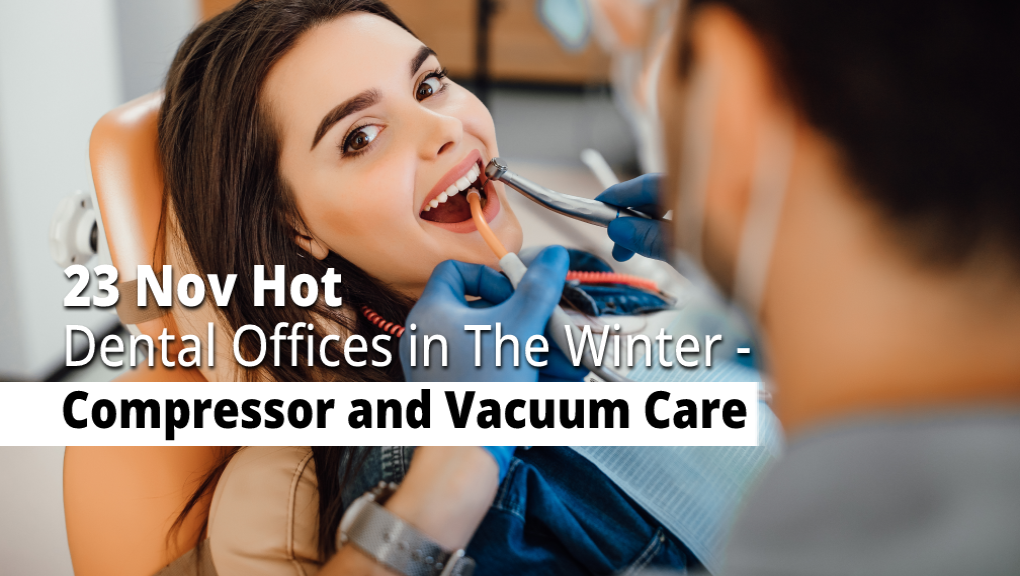
Maintain or Repair/Replace – How to keep your office running nice and HOT!
Thanksgiving is a time where we give thanks to family, friends and good health, but do any of us give thanks to a working dental office? For a dental practice owner, a well running office is a product of organization and preventive care; just like preventative dental care for your patients. Your dental office runs well when your equipment, staff, and patients work. With proper planning your dental compressor, vacuum, and x-ray will never breakdown. With capital equipment there are many steps you can take to reduce the chance of failure or issues. With minimal downtime, your dental practice is ready for production.
Dental Compressors
There are two main types of compressors, oiled and oiless. If you have an oiled compressor, the oil needs to be changed regularly and you should have minimal issues. In general, we recommend changing the oil atleast once a year. At the cost of ~$100, you can have peace of mind that your compressor will run smoothly. Although oiless compressors do not require oil changes, we generally see usage time of 4-5 years before they need to be replaced. Other items to check or replace on your dental compressor are the coalescent filter and the air desiccant. These items ensure your compressor does not have water buildup in the tank which can contaminate the lines. You will notice issues with your handpieces among other things. To ensure your compressor does not have water build up, we recommend changing the desiccant and coalescent filter once a year. If you have noticeable water build up in your tank, you can use the purge valve on the compressor itself to remove the water from the tank. Maintenance or replacement is generally recommended, but this will get you through the day.
Dental Vacuum
Suction is a key factor in dental procedures and lack of suction is an issue. Dental Vacuums experience power loss through dirty traps, improper installation, or from age. Most dental offices routinely clean their lines with vacuum cleaner solution which is a great first step. Additional preventative maintenance is through changing the traps on each chair and the main trap on the vacuum pump. If you still are experiencing suction loss the worst case scenario is your motor dying. In the case of vacuums losing power over time you have the options for overhauling the motor, but with the price, time, and warranty costs, we recommend replacing with a new unit.
Unsure of what your office needs? Call us at 949-548-4559 or email us at [email protected] As a reminder, if you are interested in purchasing new capital equipment take advantage of Section 179 tax benefits!

17821 E 17th St
Ste 180
Tustin, CA 92780
*Opt-in / Opt-out
**Customers provide their phone number and consent to receive messages via a form on our website